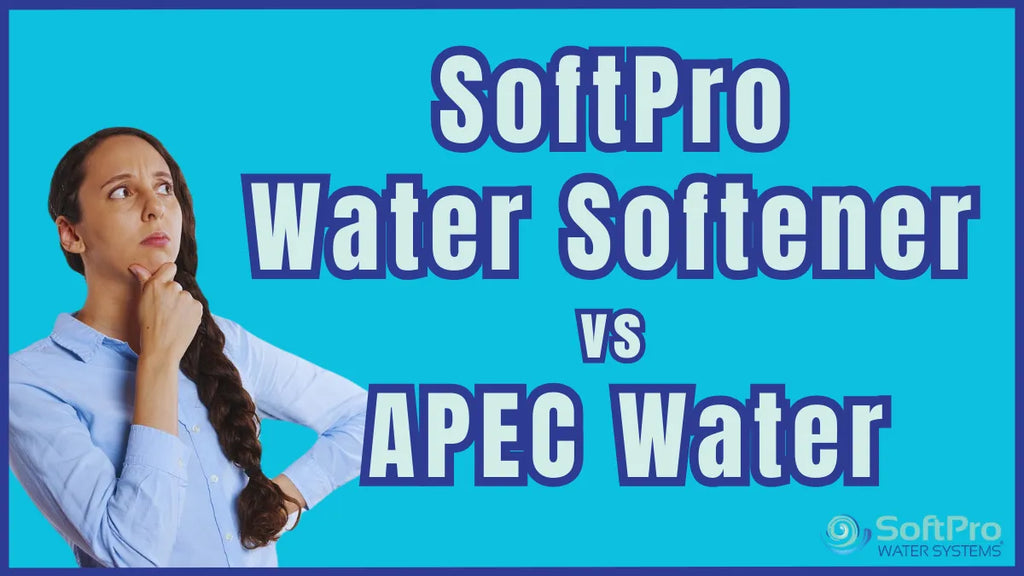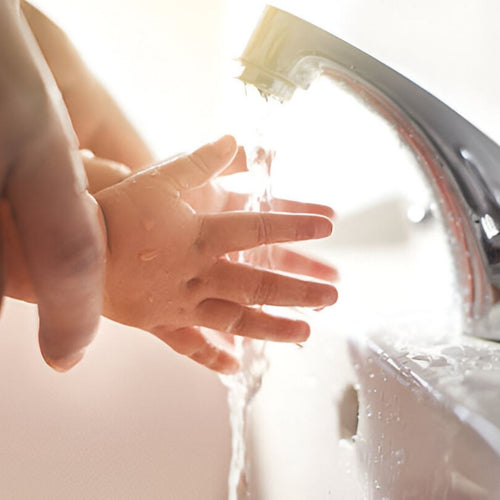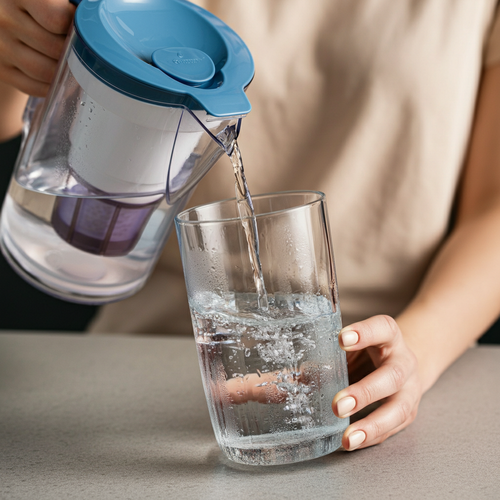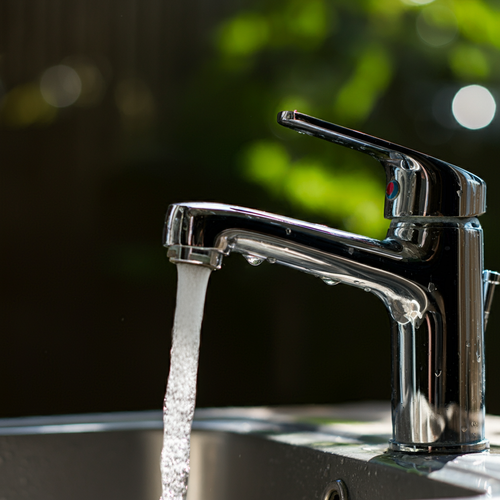Living with hard water isn't just inconvenient; it can have a significant impact on your home, appliances, and even your skin. The culprit? An abundance of dissolved minerals like calcium and magnesium, which leave behind scaly deposits and disrupt various systems. Let's dive into the common problems associated with hard water:
- Scale Buildup: The most visible offender, hard water leaves behind unsightly and stubborn limescale deposits on faucets, showerheads, and appliances. This not only aesthetics; it can also hinder their performance and shorten their lifespan.
- Inefficient Appliances: Hard water impedes the smooth operation of dishwashers, washing machines, and water heaters. The buildup reduces heating efficiency, leading to increased energy consumption and higher utility bills.
- Dry Skin and Hair: Hard water can strip your skin and hair of their natural oils, leaving them feeling dry, itchy, and irritated. Shampooing becomes less effective, and your hair may feel limp and lifeless.
- Soap Scum and Residue: Hard water reacts with soap to form a slimy, film-like residue on dishes, surfaces, and even your body. This not only looks unpleasant but also reduces cleaning effectiveness and requires more effort to remove.
- Clogged Pipes and Reduced Water Flow: Over time, mineral buildup can restrict water flow in pipes and plumbing fixtures, leading to clogs and reduced water pressure throughout your home.
Introducing the Solution: SoftPro and APEC
A water softener acts as a knight in shining armor against these hard water woes. It filters out the problematic minerals, replacing them with gentler sodium or potassium ions, leaving your water soft and manageable. Here's how SoftPro and APEC, two leading brands in the water softener market, step up to the plate:
- SoftPro: With a focus on innovation and user-friendliness, SoftPro offers a range of water softeners for various needs and budgets. From compact, DIY-friendly models to high-capacity units with advanced features, they cater to small apartments and large households alike.
- APEC: Renowned for their emphasis on efficiency and sustainability, APEC water softeners utilize advanced technologies to minimize water and salt waste. Their diverse lineup includes reverse osmosis systems and combination units that not only soften but also purify your water, providing cleaner, healthier drinking water.
Now, with the problem defined and our potential heroes introduced, let's delve deeper into the specifics of each brand and their offerings.
Feature Face-Off: The Strengths of Each Brand
While both SoftPro and APEC offer solutions to hard water woes, their approaches and strengths differ. Let's dive into a head-to-head comparison of key features to see what sets them apart:
Capacity and Grain Ratings
- SoftPro: Boasts a wide range of grain capacities, from compact 8,000-grain models suited for small homes to high-capacity 40,000-grain units tackling hard water in large households.
- APEC: Generally offers higher grain capacities, with some models reaching 60,000 grains, ideal for areas with exceptionally hard water or large water demands.
Technology and Functionality
- SoftPro: Primarily utilizes traditional ion exchange technology with salt-based regeneration. Some models include advanced features like digital interfaces, leak detection, and Wi-Fi connectivity for remote monitoring.
- APEC: Employs various technologies, including salt-based ion exchange, salt-free alternatives like templated resin, and even reverse osmosis for combined softening and purification. Their focus on efficiency often translates to features like dual-tank systems and variable bypass valves.
Efficiency and Sustainability
- SoftPro: While offering efficient models, their focus tends more on user-friendliness and affordability. However, some high-end models feature variable bypass valves and eco-friendly regeneration cycles.
- APEC: Champions efficiency and sustainability, showcasing technologies like high-efficiency valves, low-salt consumption systems, and even salt-free options. This minimizes water and salt waste, making them an attractive choice for eco-conscious homeowners.
User Interface and Control Options
- SoftPro: Many models feature user-friendly interfaces with digital displays and intuitive controls. Some even offer Wi-Fi connectivity for remote monitoring and control.
- APEC: While some models have user-friendly interfaces, others may require more technical understanding due to their advanced features and settings. However, their manuals and customer support are typically comprehensive.
Performance Analysis: Measuring Each Softener
Beyond features, the true test lies in performance. Let's delve into the effectiveness and impact of SoftPro and APEC water softeners:
Hard Water Removal Effectiveness
- SoftPro: Generally effective at removing common hard water minerals like calcium and magnesium. Independent lab tests and user reviews indicate consistent performance across their range, with higher-capacity models tackling tougher water conditions.
- APEC: Known for exceptional removal efficiency, particularly with models utilizing reverse osmosis technology. They consistently achieve near-zero hardness levels, making them ideal for areas with extremely hard water or specific water purity needs.
Flow Rate and Pressure Impact
- SoftPro: Minimal impact on water flow rate and pressure in most cases. Some models, particularly high-capacity units, may experience slight reductions during regeneration cycles.
- APEC: Some advanced models, especially those with reverse osmosis, may experience slightly reduced flow rates compared to traditional softeners. However, their dual-tank systems and bypass valves often minimize this impact.
Water Quality Beyond Hardness
- SoftPro: Primarily focuses on softening, although some models offer additional filtration for sediment or chlorine reduction.
- APEC: Many models, particularly those with reverse osmosis, not only soften but also purify the water, removing additional contaminants and impurities, leading to cleaner, healthier drinking water.
Cost Breakdown: Weighing the Value Proposition
While both SoftPro and APEC offer undeniable benefits, choosing the right one depends on your budget and priorities. Let's break down the cost landscape:
Upfront Costs and Model Variations
- SoftPro: Offers a wider range of price points, with basic models starting around $300 and high-capacity units reaching $1,500+. Their diverse lineup caters to various budgets and needs.
- APEC: Generally leans towards the premium end, with most models starting around $500 and advanced systems exceeding $2,000. Their focus on efficiency and advanced technologies often comes at a higher price tag.
Installation and Maintenance Expenses
- SoftPro: Many models are DIY-friendly with clear instructions and readily available support. Professional installation typically costs around $150-$300. Maintenance involves regular salt refills (around $10-$20 per month) and occasional filter replacements (varying costs depending on model).
- APEC: Some models are DIY-friendly, but advanced systems often require professional installation, which can range from $200-$500+. Maintenance involves salt refills for salt-based models and filter replacements, potentially including reverse osmosis membranes (up to $100 each).
Long-Term Savings and Payback Period
- SoftPro: Can offer significant cost savings through reduced water and energy consumption due to efficient appliances. The payback period usually falls within 2-3 years, depending on model, water usage, and utility rates.
- APEC: Their higher upfront cost can be offset by greater efficiency and lower salt consumption. Additionally, models with reverse osmosis can eliminate bottled water purchases, leading to faster payback periods (potentially within 1-2 years) for heavier water users.
User Reviews and Real-World Experiences: Knowing the Pros and Cons
Beyond technical specifications, real-world user experiences can offer valuable insights into the strengths and weaknesses of each brand. Let's delve into the collective wisdom of online reviews and user forums:
SoftPro vs APEC: The Pros and Cons from Users' Perspectives
SoftPro:
- Pros: Highlighted for affordability, user-friendly features, DIY installation options, and effective softening performance. Many users appreciate the wide range of models and budget-friendly options.
- Cons: Some reviews mention occasional challenges with DIY installation, and a few users report experiencing slightly higher salt consumption compared to some APEC models.
APEC:
- Pros: Praised for exceptional softening and purifying performance, particularly with reverse osmosis models. Users appreciate the focus on efficiency, sustainability, and cleaner drinking water.
- Cons: Higher upfront costs and potentially complex installation for advanced models are frequently mentioned. Some users with less technical knowledge might find the interface on some models less intuitive.
Matching User Needs to the Right Softener: Finding Your Perfect Fit
By understanding your priorities and circumstances, you can leverage user feedback to choose the ideal softener:
- Budget-Conscious: SoftPro's diverse range offers effective softening at accessible price points. Consider DIY installation for further cost savings.
- Tech-Savvy: SoftPro's advanced models with Wi-Fi connectivity and APEC's high-efficiency systems with customizable settings cater to those who appreciate technological control.
- Eco-Friendly: APEC's focus on efficiency, low-salt consumption, and even salt-free options aligns with sustainable practices. Consider reverse osmosis models for combined softening and purification.
- Performance-Driven: Those with exceptionally hard water or specific water purity needs might prioritize APEC's near-zero hardness removal and advanced filtration capabilities.
Installation and Maintenance
Choosing the right water softener is just the first step. Now, let's explore the practical aspects of installation and maintenance for both SoftPro and APEC models:
DIY Installation: A Step-by-Step Guide
This section would be specific to SoftPro models with clear instructions and resources for DIY installation. Consider outlining the steps involved, highlighting challenges to anticipate, and offering advice for successful completion. Include links to helpful materials like video tutorials or manufacturer's guides.
Essential Maintenance Tips for Optimal Performance
Once installed, proper maintenance ensures your softener runs smoothly and efficiently. Here are some key tips for both SoftPro and APEC models:
- Regular Salt Refills: Both brands require salt replenishment for salt-based systems. Frequency depends on water hardness and usage, but expect refills roughly every 2-4 weeks.
- Filter Replacements: Replace filters according to the manufacturer's recommended schedule, typically every 6-12 months. Some advanced APEC models, particularly those with reverse osmosis, might require additional membrane replacements at longer intervals.
- Periodic Cleaning and Sanitization: Follow the manufacturer's instructions for cleaning and sanitizing the softener tank and internal components at regular intervals to prevent bacterial growth and maintain optimal performance.
- Monitoring Performance: Check water hardness levels periodically using test strips or a professional analysis to ensure the softener is functioning effectively.
Troubleshooting Common Issues
Both brands may experience occasional issues. Having some basic troubleshooting knowledge can save you time and prevent unnecessary service calls. Consider including a section covering common problems (e.g., leaks, low water pressure, error codes) and offering initial troubleshooting steps or resources for further assistance.
Remember, always consult the manufacturer's manuals and warranty information for specific instructions and guidelines.
Final Thoughts: Making an Informed Decision
Choosing the right water softener involves careful consideration of your needs, budget, and priorities. By understanding the strengths and weaknesses of both SoftPro and APEC, you can confidently make an informed decision that suits your household. Here's a recap to guide you:
Recap of Key Differences and Strengths
- SoftPro: Offers a wider range of models at various price points, excels in user-friendliness and DIY options, delivers reliable softening performance, boasts efficient models with payback periods within 2-3 years.
- APEC: Renowned for exceptional softening and purifying performance, particularly with reverse osmosis, champions efficiency and sustainability with low-salt consumption and even salt-free options, ideal for those with hard water or seeking cleaner drinking water, but generally comes at a higher upfront cost and may require professional installation for advanced models.
Tailoring the Choice to Individual Needs
- Budget-conscious: Opt for SoftPro's affordable models and consider DIY installation.
- Tech-savvy: Explore SoftPro's advanced features and APEC's customizable settings.
- Eco-friendly: Choose APEC's efficient systems and salt-free options.
- Performance-driven: Prioritize APEC's near-zero hardness removal and advanced filtration.
Where to Find More Information and Get Support
- Visit the official websites of SoftPro and APEC for detailed product information, specifications, and user manuals.
- Explore online reviews and forums to gain insights from real users' experiences.
- Consult with a water treatment professional for personalized advice and installation assistance if needed.
Remember, there's no "one-size-fits-all" solution. By analyzing your specific needs and comparing the unique strengths of SoftPro and APEC, you can choose the water softener that best empowers you to conquer hard water and experience the benefits of soft, clean water throughout your home.
You can also read more articles about SoftPro compared to other brands, including SoftPro vs A. O. Smith and SoftPro vs Aquasure.


















![Aldex Premium 10% Cross Link Resin for Water Softener [High Capacity]-SoftPro® Water Systems](http://www.softprowatersystems.com/cdn/shop/files/Aldex_10_Cross_Link_Resin_Premium_High_Capacity_for_Water_Softener_600x.jpg?v=1735853599)





















